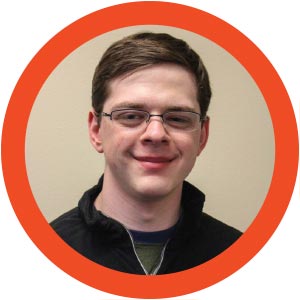Computing for a Cause
When Baylor University senior James Payne saw the children involved in Antioch Community Church’s STARS Mentoring Project reading books and engaging with their mentors, he knew his behind-the-scenes work was making a difference.
Payne, a computer science graduate from Baylor’s School of Engineering & Computer Science, volunteered with Computing for Compassion (C4C), a student-led campus outreach tasked with tackling the technology challenges for Central Texas ministries and nonprofits, during his student career.
“My work with Computing for Compassion helped me realize I want to be on the people side of technology,” Payne said. By meeting organizations’ technology needs, C4C gives ministries space to focus more on ministry and less on logistics, according to Dr. Jeff Donahoo, professor of computer science. He and Dr. Bill Booth, senior lecturer in computer science, launched the group in 2013.
“Ministries in Waco and beyond should be able to focus on their mission, not bogged down with technical challenges,” Donahoo said. “C4C allows students with skills in computer science and information technology to use their gifts to magnify the capabilities of compassion-based ministries. Our goal is simply to help enhance the great work of these programs.”
Recent C4C projects include:
- Streamlining volunteer resources for the STARS Mentorship Program at Antioch Community Church
- Improving website and donor communication infrastructure for Global Banjara Baptist Ministries International (GBBMI)
- Creating a mobile intervention app for children with attention deficit difficulties
- Developing a church notes website for St. Luke Catholic Church in Temple, Texas
- Developing a website for Baylor Agape Connection
C4C has more than 20 students working on projects on average. The group consists of mostly computer science majors, along with students in electrical and computer engineering, bioinformatics, mathematics and University Scholars. C4C is open to all students interested in using their technological skills to better the community.
The program is a win-win for the community and the students, Donahoo said. As students have the opportunity to speak into problem-solving techniques and infrastructure improvements, they gain valuable real-world experience that does significant good for the community.
Through their work with the STARS Mentoring Project, C4C students were able to augment the organization’s volunteer base by making it easier to bring in more mentors and serve more students in need by improving their information technology. Since 2013, STARS has grown from 80 volunteers to 135, and now serves 369 children in the community, up from 146.
“C4C has saved us dozens of hours through the time-saving solutions they’ve developed for our program,” said Michael Jeter, assistant director for the STARS Mentoring Project. “Those in turn have helped us expand our capacity to interview, train and manage more volunteers, increasing the number of mentors meeting with students in our city.”,/
The work goes far beyond a degree requirement, Donahoo explained. His hope from the beginning was to see students’ lives transformed through investing in others.
“We hope our students’ dedication will be ongoing,” Donahoo said. “We hope that as students leave the university, they will carry forward a desire to plug in and support compassion-based ministries in their communities.”
